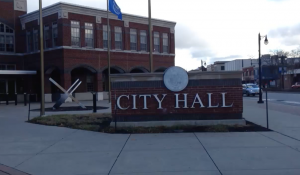Frustrated activists for Chicago’s homeless were stymied once more last week when the City Council again failed to address a proposed ordinance that would funnel Tax Increment Financing funds into affordable housing programs.

The proposal, dubbed the “Sweet Home Chicago” ordinance by the Chicago Coalition for the Homeless, calls for an increase of funds from the 158 TIF districts, from which an estimated $1.3 billion in revenue was generated in 2008.
Eithne McMenamin, policy analyst for the coalition, says that equates to about $500 million that could be used for affordable housing.
Mayor Richard M. Daley said in Wednesday’s special City Council meeting to present the 2011 budget that he would use TIF funds in order to plug the city’s deficit, which is at an estimated $655 million.
Only 4 percent of TIF funds are used for housing and rehabbing foreclosed properties, McMenamin said. The coalition wants that number increased to 20 percent.
The coalition estimates that had the ordinance been in place in 2009, nearly $100 million could have gone to affordable housing.
McMenamin, along with a handful of enthused coalition members wearing red shirts with “Sweet Home Chicago” written on them, attended last week’s full council meeting to rally support for the measure and to pressure aldermen into casting a vote on it.
McMenamin says the coalition wanted an alderman to file a motion during last Wednesday’s meeting to move the measure from the Joint Finance and Housing committee to the full council.
“It’s sort of an in-your-face move to [14th ward] Ald. [Edward] Burke,” McMenamin said. “We’re asking for more transparency, for more accountability, when it comes to building houses for the working-class families of Chicago.”
Ald. Burke chairs the Joint Committee on Finance and Housing, along with Ald. Ray Suarez (31st). Calls to both Burke and Suarez were not returned by press time.
McMenamin says 28 of the 50 aldermen say they support the proposal.
Robin Olson, an organizer with the coalition, said most of the TIF money goes to projects that wouldn’t be considered blighted housing—a requirement in the state’s TIF law—like renovating the Willis Tower.
“There’s a far greater need to make affordable housing. So take that extra TIF money that we do have and put it into immediate areas [that need low-income housing],” Olson said.
But some aldermen argue that TIF money should be used to balance the city’s considerable deficit.
Ald. Brian Doherty (41st), who opposes the measure, said, “We should crack the TIF and use the money to address the deficit we have now before we expand any other programs.”
While Doherty stressed he “wasn’t against anyone having a roof over their heads,” the alderman said he thinks a market-based approach, such as Section 8 vouchers, can create fair affordable housing.
Doherty said government housing drives down market prices, which can create unneeded conflict amongst neighbors.
“You get couples from my neighborhood, dads working two or three jobs, struggling to make it,” Doherty said. “And then you have another family who moves into housing subsidized by the government, and it creates a lot of tension. They’re like, ‘why them? Why am I working so hard?’”
Ald. Richard Mell (33rd), a supporter, said after Wednesday’s meeting that a motion to discharge — bypassing the committee and taking a proposal to the full council – is hard to do.
“It’s difficult for a chairman to discharge a committee on another chairman. We have to coax them, and that’s where I’m trying to help,” Mell said.
Coalition organizer Sonovia Petty said the organization isn’t giving up its mission to get the proposed measure passed—no matter how many monthly meetings they have to attend.
“We want to let [the aldermen] know that we’re not going anywhere. We will be here each and every time,” said Petty.











Be First to Comment